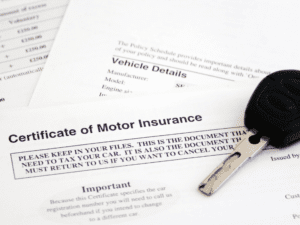
A previous version of this blog post discussed how credit scores could significantly impact a driver’s car insurance rates in Michigan. However, changes to the state’s auto insurance laws now prohibit insurance companies from using credit scores to set rates for consumers. Here, Christensen Law explains the new rule and what it means for Michigan drivers.
Does Your Credit Score Affect Your Car Insurance Rate?
 Before July 2020, insurance companies could use a variety of “non-driver factors” to determine insurance rates for policyholders. Along with credit scores, non-driver factors included things like a driver’s sex, marital status, homeownership, educational level, job, and ZIP code.
Before July 2020, insurance companies could use a variety of “non-driver factors” to determine insurance rates for policyholders. Along with credit scores, non-driver factors included things like a driver’s sex, marital status, homeownership, educational level, job, and ZIP code.
Why?
Insurance companies argued that credit scores were a good way to evaluate a driver’s trustworthiness. The theory was that people with higher credit scores are financially responsible, which may also indicate that they’re safe drivers. Because safer drivers are involved in fewer accidents, the insurance company predicted they wouldn’t have to pay out as much in claims. For that reason, safer drivers got cheaper insurance rates.
However, opponents said that the practice unfairly penalized people with bad credit, many of whom were low income and stuck in a cycle of poverty. Past studies showed Michigan drivers with poor credit paid $3,000 to $5,500 more for their auto insurance than those with good credit.
Of course, your credit score doesn’t necessarily correlate with how safe a driver you are. There are plenty of drivers with great credit scores who are unsafe drivers, and vice versa.
What Factors May Affect Your Car Insurance Premium?
Factors that can affect your car insurance premiums include:
- Age — Younger drivers tend to get higher insurance rates because they have less driving experience and are more likely to take dangerous risks.
- Driving experience — More experienced drivers usually get cheaper insurance rates, especially if they don’t have many accidents on their driving records.
- How you use your vehicle — The amount you drive and how you use your vehicle can make a major difference in its annual wear and tear. Drivers who primarily use their cars for short commutes usually get cheaper rates, while drivers who go on long trips or use their vehicles for their jobs may see their rates increase.
- Location — If you live in a crowded city, you inevitably encounter more traffic, increasing the likelihood of a car accident. On the other hand, there are fewer drivers in more rural areas. For this reason, drivers in urban areas often have higher insurance premiums than people in rural areas.
- The type of car you drive — According to the insurance company, the kind of car you drive says a lot about your driving behavior. For instance, someone who drives a sports car is thought to be more likely to speed than someone driving a minivan. Drivers with flashier, more expensive vehicles usually pay more for insurance than those with older or less showy cars.
Contact a Michigan Car Accident Lawyer Today
Hurt in a Michigan auto accident? The car accident lawyers at Christensen Law can help. Our experienced personal injury attorneys will guide you through the process of filing a car accident claim and help you get the maximum compensation you deserve. Contact us today for a free consultation.





